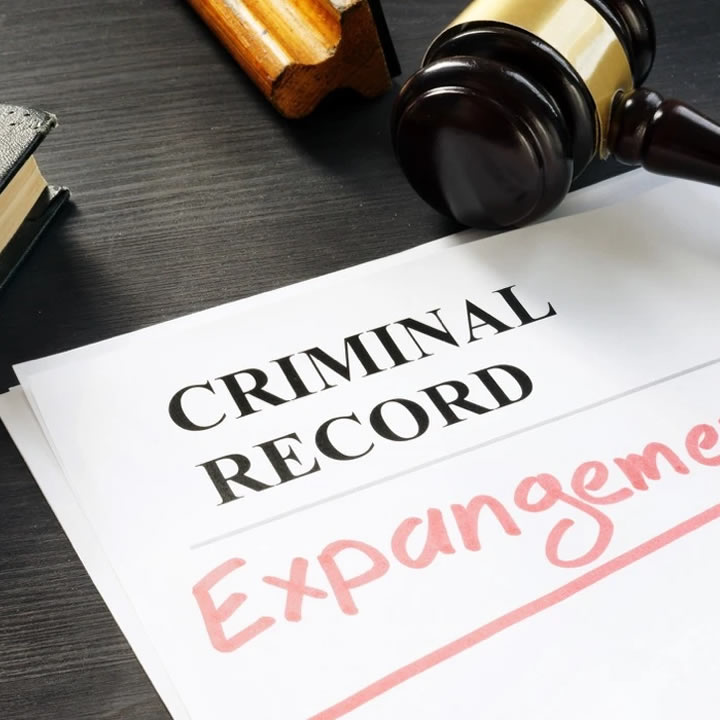So, there came a point in your life where breaking the law made more sense than abiding by it. In a moment of poor judgment, you were caught, arrested, and sentenced to jail time as a result. You served your time and now you’re back in your past life.
Unfortunately, everything has changed. You can’t seem to get a decent job that allows you to adequately provide for your family. Landlords refuse to rent to you considering your past (even if it wasn’t a very serious offense). You can’t even seem to get certain types of government aid.
Fortunately, thanks to amended expungement laws, things are changing for the better. Now, there is a chance that you can have your criminal record wiped clean in the state of Alabama. An expungement attorney will be able to help you figure out where or not you are eligible for expungement.
Continue reading to learn everything that you need to know about amendments to the new Alabama expungement law.
What Is Expungement?
Expungement is when you can have criminal charges removed from your criminal history as it is accessible to the public.
This doesn’t mean that it disappears completely because the court system and law enforcement still have access to your permanent criminal record. But it is, however, ideal for those with criminal histories that might prevent them from getting a job when the employer runs a background check.
Alabama Expungement Laws
In 2014, the Alabama legislature made it so that Alabama residents who haven’t been convicted of their crimes could apply to have their records expunged. New improvements to the Record Expungement Designed to Enhance Employment and Eliminate Recidivism Act, also known as the Redeemer Act, came about in 2021.
How Has the Law Changed?
Originally, the law stated that those who were not convicted of their charges would be eligible for expungement. Now, the convictions for certain felony and misdemeanor charges can be expunged as well. The law changed so that certain felony and misdemeanor charges and convictions can qualify for expungement when the individuals reach a certain requirement.
Misdemeanors
Individuals dealing with misdemeanor charges may petition for an expungement when:
- Charges get dismissed
- Charges become no-billed by the jury
- The indictment is quashed or the statute of limitations expired
The dismissal of charges may take place one year after the completion of:
- Drug court program
- Mental health court program
- Diversion program
- Veteran’s court
- Court-approved prosecution program
The criteria for expunging misdemeanor is as follows:
- Probation and/or parole requirements
- Three years since conviction date
- A vehicle wasn’t being operated during a crime
- No sex offenses
- No serious traffic offenses
- No moral turpitude
You will also want to stay out of trouble while you are going through the process. You should avoid any new files being opened and new charges being placed against you.
Felonies
Felony charges can get expunged if:
- Charges get dismissed
- Charges get no-billed by the jury
- Not guilty verdict
- Indictment quashed/ statute of limitations expired
- Charges get dismissed after completion of a court-mandated program
- Five years passed since the dismissal took place
For a felony conviction to be expunged, the following conditions must be met:
- Granted pardon with the restoration of political and civil rights
- Forfeited rights get restored
- It’s been 180 days since a pardon certificate
- Wasn’t a violent or sexual offense
- Wasn’t a serious traffic offense
- Didn’t involve moral turpitude
As with misdemeanors, it’s ideal to stay out of trouble while you are trying to get your felony expunged from your criminal record.
Why Can’t Felons Find Jobs?
Having a felony conviction on your record makes it nearly impossible for felons to find gainful employment. In fact, being a felon means that you are unable to get the licenses needed to become an interior designer, a utility worker, or even certain types of hairdressers.
With the new amendment to the expungement laws, individuals with a criminal history can get a second chance at a good life. It’s given them the chance to live their life the way they would’ve had they never gotten into trouble. The expungement laws are also aimed at reducing recidivism.
When a convicted felon gets out of jail, their life is spun upside down. They have to try to live their lives within a broken system.
Recidivism is the likelihood of someone falling back into their old habits or behaviors, especially criminal behaviors. In fact, 5 out of 6 people who were arrested and served jail time for a crime are likely to go back to jail within 9 years of their release.
With the new expungement laws, these ex-offenders are less likely to turn back to a life of crime. They can find better jobs and have greater access to housing and government aid. They are better able to provide for their families and take care of themselves.
At one point, these individuals believed that their lives were ruined because of a mistake they made in their past. The expungement helps them to renew their trust in the criminal justice system. It gives them a reason to stay on track and to stay out of trouble.
Consult With an Expungement Lawyer
With the new expungement laws, your second chance at life may be right around the corner. Your criminal record doesn’t have to define the rest of your life. You served your time, now let us help you.
Having the right attorney on your side during this chaotic time can help to make the whole process a little bit easier. Contact Alabama Expungement Lawyer today to see if you are eligible to have your criminal record expunged.

